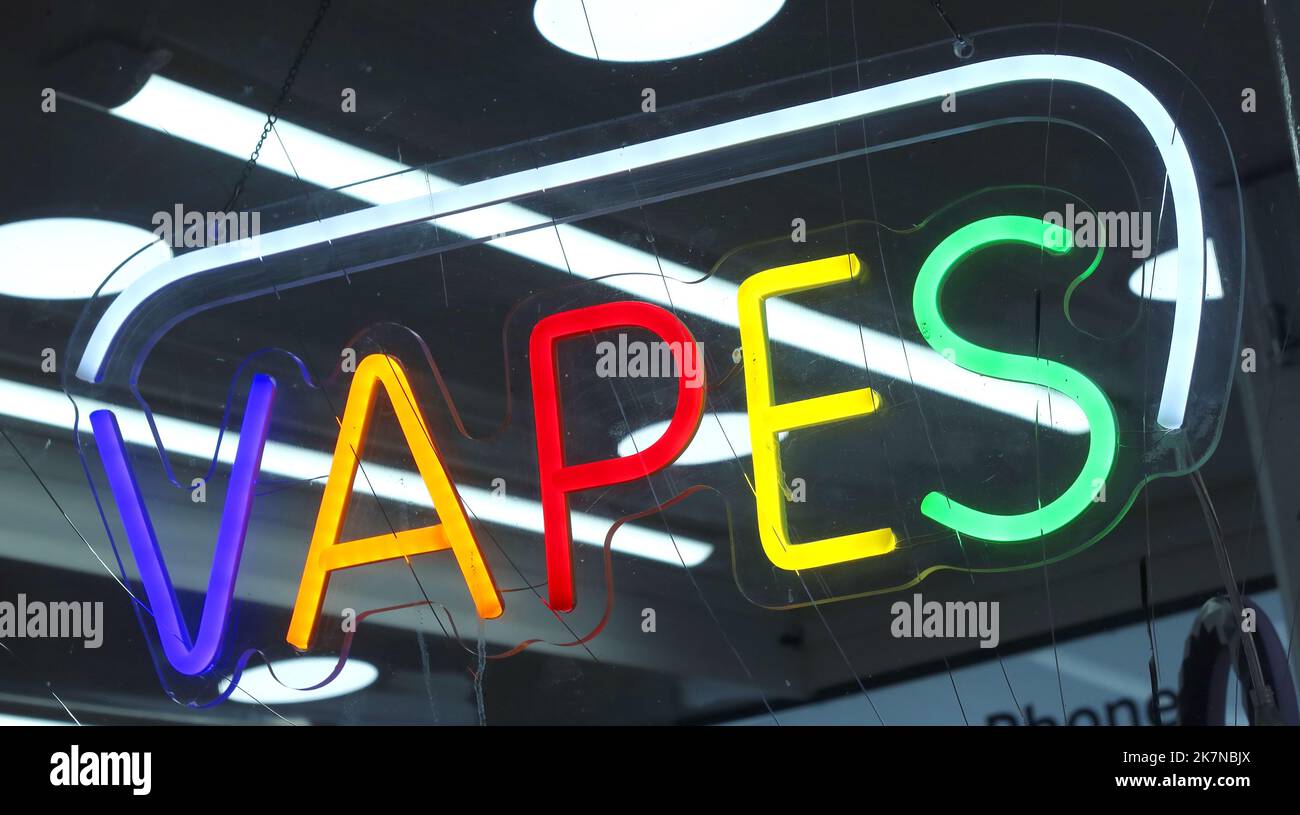Vapes neon sign at a Vape Shop supplying eCigs, eJuice, supplies,

Image details
Contributor:
Tony Smith / Alamy Stock PhotoImage ID:
2K7NBJXFile size:
43.9 MB (892.9 KB Compressed download)Releases:
Model - no | Property - noDo I need a release?Dimensions:
5244 x 2928 px | 44.4 x 24.8 cm | 17.5 x 9.8 inches | 300dpiDate taken:
16 October 2022Location:
York, Yorkshire, England, UKMore information:
A vape shop is a retail outlet specializing in the selling of electronic cigarette products. There are also online vape shops. A vape shop offers a range of e-cigarette products. The majority of vape shops do not sell e-cigarette products that are from "Big Tobacco" companies. In 2013, online search engine searches on vape shops surpassed searches on e-cigarettes. Around a third of all sales of e-cigarette products take place in vape shops. Big Tobacco believes the independent e-cigarette market is a threat to their interests. Effective August 8, 2016, under the Food and Drug Administration (US FDA) rules, a vape shop that mixes or prepares e-liquids, or makes or modifies any kind of e-cigarettes, is regulated as a tobacco product manufacturer. The US FDA acknowledged that many vape shops will go out of business, but they also state many will stay open, despite hefty costs. Vape shop owner Joe Baba in the US believes a ban on public vaping might put several vape shops out of business because taste-testing would be prohibited. The revised EU Tobacco Products Directive came into effect May 2016 which regulates the sale and marketing of e-cigarettes. Small business owners are concerned that the regulations will make e-cigarettes less interesting to consumers and that this means a downturn of their business By 2014 all the major multinational tobacco companies had entered the e-cigarette market. They did so either by buying existing e-cigarette companies (including Ruyan, the original Chinese e-cigarette company, which was bought by Imperial Tobacco) or by developing their own products. Although there continue to be independently owned vape shops, from economic and political perspectives the e-cigarette business is now part of the traditional tobacco industry. The smaller operators, who are independent sellers of e-cigarettes (so-called vape shops), are losing market share to the large tobacco companies